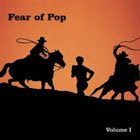 |
vs. |  |
vs. |  |
| "Criminal" by Fiona Apple from Tidal | "Tired of Sex" by Weezer from Pinkerton | "Possum Kingdom" by Toadies from Rubberneck |
"Criminal" (3 plays at Last.fm, unranked): Despite the fact that Fiona Apple's second album is head and shoulders above her first, in my opinion, this debut single remains her best song. It's sultry and lush, and probably could only have come about between Liz Phair's Whip-Smart and Britney Spears' ...Baby One More Time. Structurally, it's got a kind of wicked confidence, with Apple's vocals anticipating beats and meshing with the light drums maybe more than anything else. It feels like a hit single, which makes the extended, eastern-teasing outro that much more interesting; I'm positive it was cut for radio promos, though I can't say I remember for sure. In a lot of ways, it's a song that's built to be hard to follow up (and the herion-chic, underwear-filled video probably didn't help that any), which makes the fact that Apple disappeared into cult popularity afterward not that surprising.
"Tired of Sex" (6 plays, unranked): In some ways, the first 22 seconds of this song, before the vocals come in, are the most awesome in the history of rock. Coming off a polished, poppy, MTV-friendly first record, Weezer recast themselves as a noisy emo band (and that's "emo" as it was understood in the mid-90s, as opposed to the 80s or today). In so doing they provided a bridge between Braid and the Get Up Kids and established an incredibly high-energy presence that held throughout Pinkerton and its b-sides. Everything is on full shout here, and come on, "Tired of Sex" could be the title of a thousand parody emo songs if it weren't already real. It's the slightly stronger half of a great couplet of angst and confusion with "Getchoo," the two songs making a perfect musical dovetail and a frustrating lyrical clash. It's material that you could imagine turning Rivers Cuomo into a hermit if, say, Rolling Stone were to give it an incredible panning (which it did).
"Possum Kingdom" (11 plays, tied for #180): This round really is an encapsulation of mid-90s rock radio. Several years ago (I want to say 2003, but I don't recall for certain) I went back to my undergrad alma mater for its Winter Carnival and somehow found myself in a frat house basement with about 50 people ranging from age 18 to 30 or so. When this tune came on, everybody sang it. The whole thing. When I saw the Toadies last summer, it was the same thing (and I was really glad to see them not eschewing their One Big Hit). The little repeated guitar progression was an incredible building effect -- I think when you listen to the song it seems like it's just the quieter-to-louder vocal repetition at the end, but that guitar provides the foundation for it throughout the song. Then, of course, when you get to that peak it's like all Hell breaking loose. It sounds, on record, like a live crowd going crazy, so much so that when an actual live crowd actually goes crazy it feels familiar.
VERDICT: This is a really tight one between "Tired of Sex" and "Possum Kingdom." Weezer gets the edge because the anticipation that comes at the end of "Tired of Sex" -- both because it's an incredible trailer for their sound at the time and because you know "Getchoo" is coming next -- is so exquisite.


















